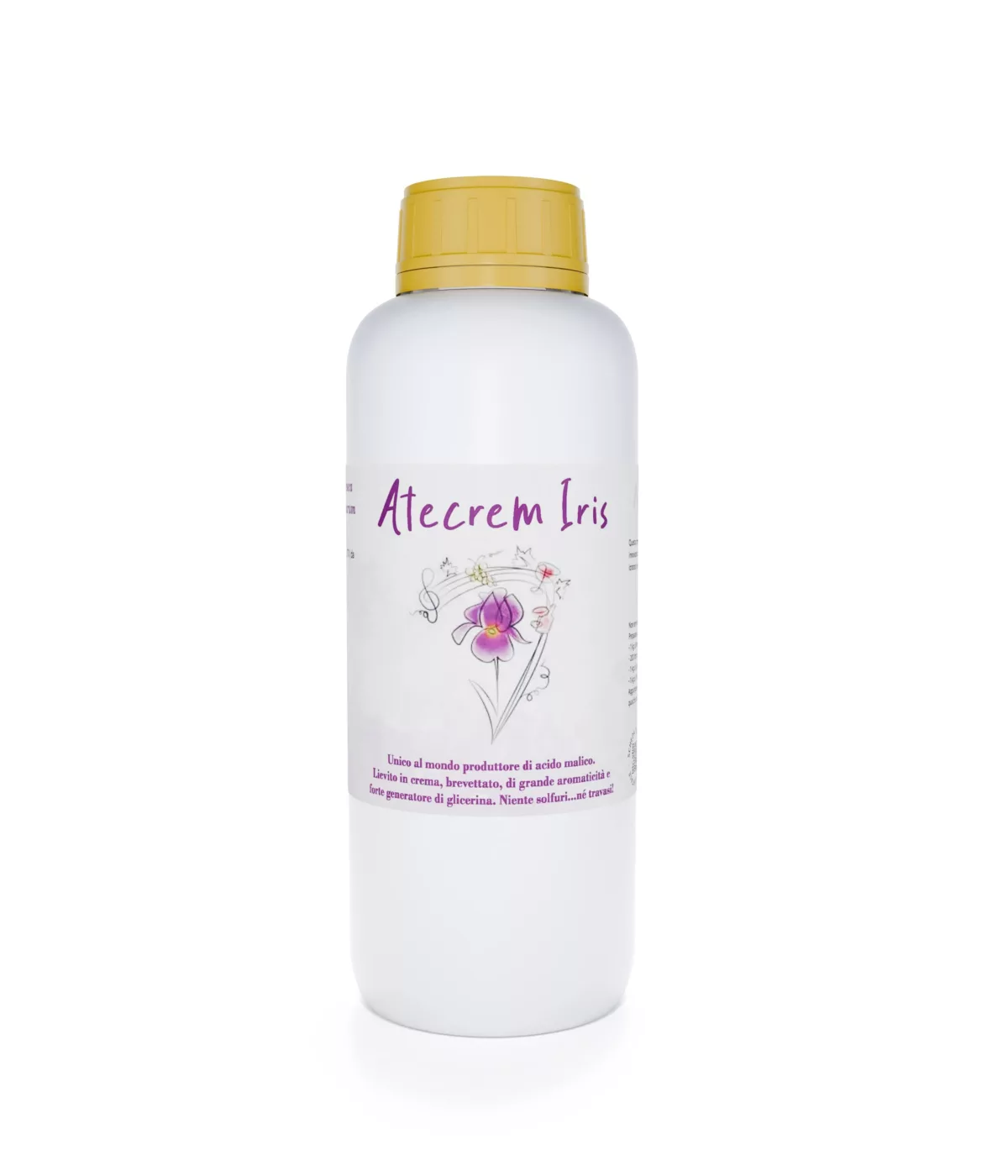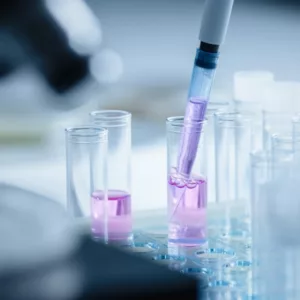
Iris
The strain belongs to the Saccharomyces bayanus species, which has QPS status recognized by the EFSA. Iris (Serius patent n°102017000051113), an Atecnos-selected cream yeast, was isolated from Iris pallida grapes and flowers in the Marca Trevigiana area. Studies carried out in collaboration with the University of Bari Aldo Moro, the Istituto Superiore di Sanità, and the A. Murri Medical Clinic at the Policlinico di Bari University Hospital have highlighted its probiotic potential.
IN VITRO STUDIES:
- Anti-inflammatory and immunomodulatory activity
This activity was demonstrated using three different cell models: Caco-2 (human colon adenocarcinoma), PBMC (peripheral blood mononuclear), and HaCaT (immortalised human keratinocytes) cell lines. - Protection of the intestinal epithelium
The potential of the SERIUS strain to preserve the integrity of the intestinal epithelium was also highlighted by using Caco-2 cell lines. - Anti-radical/anti-oxidant properties in keratinocytes
The SERIUS/IRIS strain mitigated the release of TNF-α by HaCaT keratinocytes in response to a pro-inflammatory stimulus. Treatment with cells from the SERIUS/IRIS strain also proved highly effective in decreasing the production of reactive oxygen species (ROS), helping to counteract skin aging and oxidative stress caused by UV radiation or other inflammatory and oxidative conditions affecting the skin. - Ability to hydrolyse phytates under gastro-intestinal conditions
The SERIUS strain’s ability to hydrolyse phytic acid may enhance the body’s absorption of essential minerals. - Ability to release essential amino acids for humans into the intestinal lumen
The ability to metabolise ammoniacal nitrogen may help reduce the intestinal nitrogen load, potentially contributing to the management of urea and ammonia accumulation in individuals with chronic kidney disease.
IN VIVO STUDY:
A randomised crossover clinical trial was conducted on 44 healthy volunteers.
The study comprised an initial two-month treatment period, followed by a 15-day washout period. Participants then crossed over to receive the alternate treatment for an additional two months.
- Faecal volatilome analysis
The levels of tryptophan-derived metabolites were modified following treatment with S. bayanus SERIUS/IRIS. Overall, tryptophan-derived microbial metabolites are emerging as key mediators of host–microbiota communication, acting as ligands and agonists of the aryl hydrocarbon receptor (AhR), which plays a key role in immune modulation and intestinal homeostasis.
The statistically significant increase in acetic acid levels in faecal samples after S. bayanus SERIUS/IRIS was administered suggests that the yeast could play a role in restoring gut balance and supporting immune activity. - Analysis of the volatile compound profile in urine samples
Significant decreases in the levels of furan, 2,5-dimethyl were observed in the group that received S. bayanus SERIUS/IRIS. While the relationship between this compound and gut microbiota remains unclear, it is often found in urine and has been linked to certain diseases.
Environmental Label
What it is
Where it goes
Container
Cork
Plastic collection
Check the provisions of your municipality
